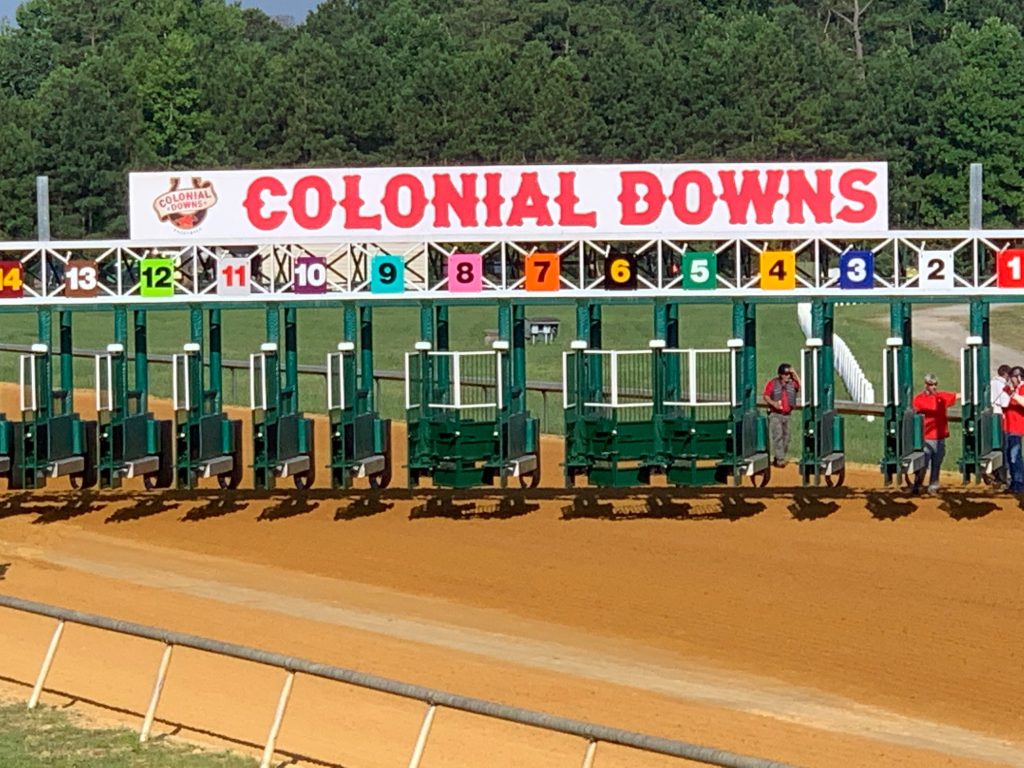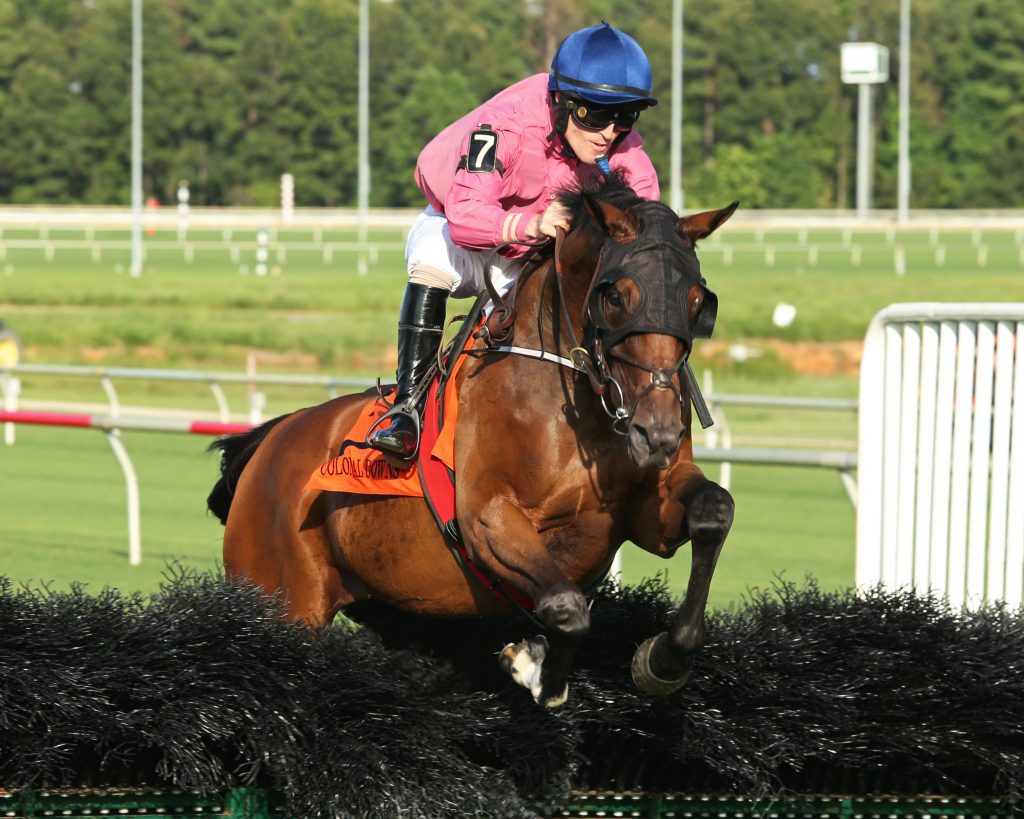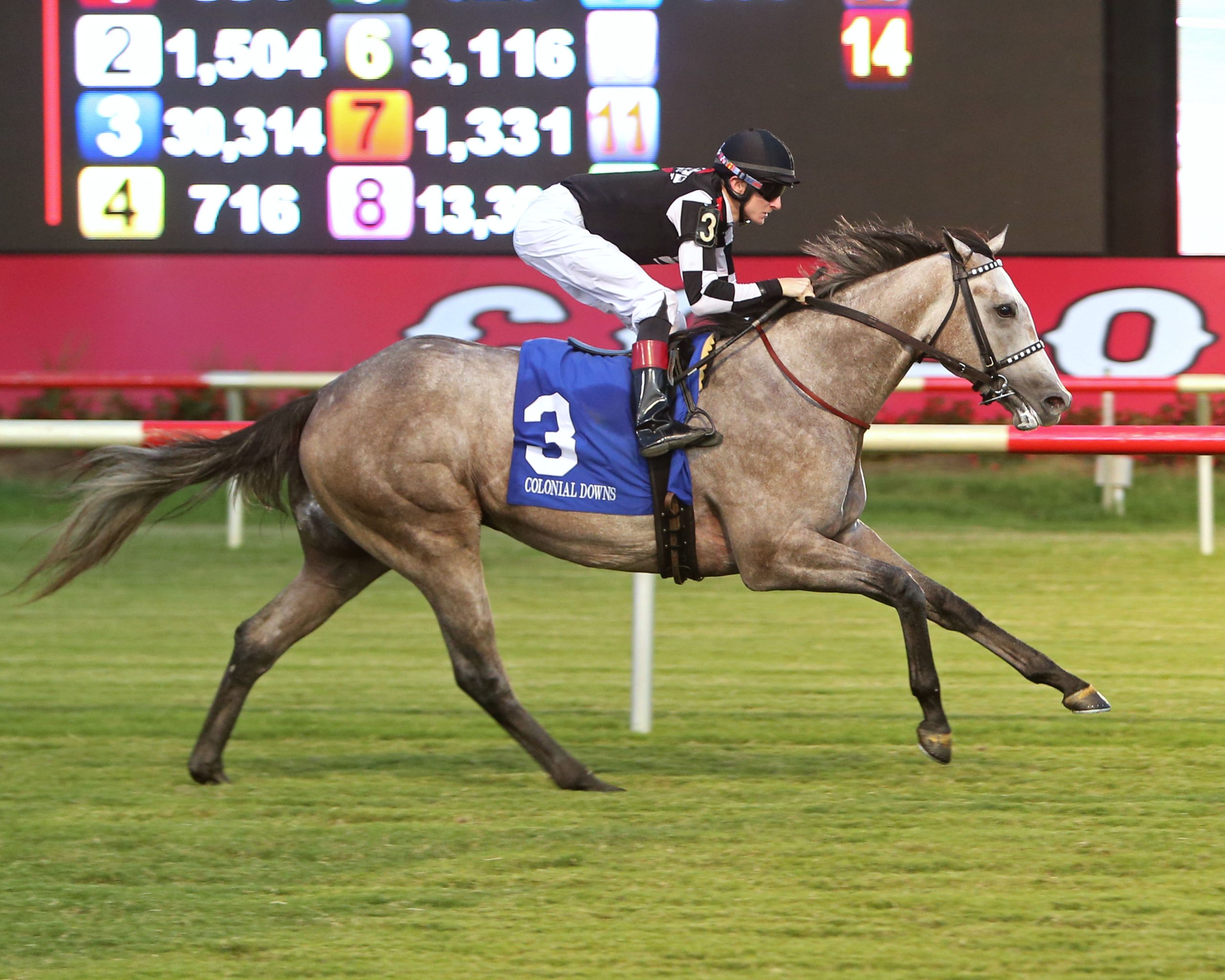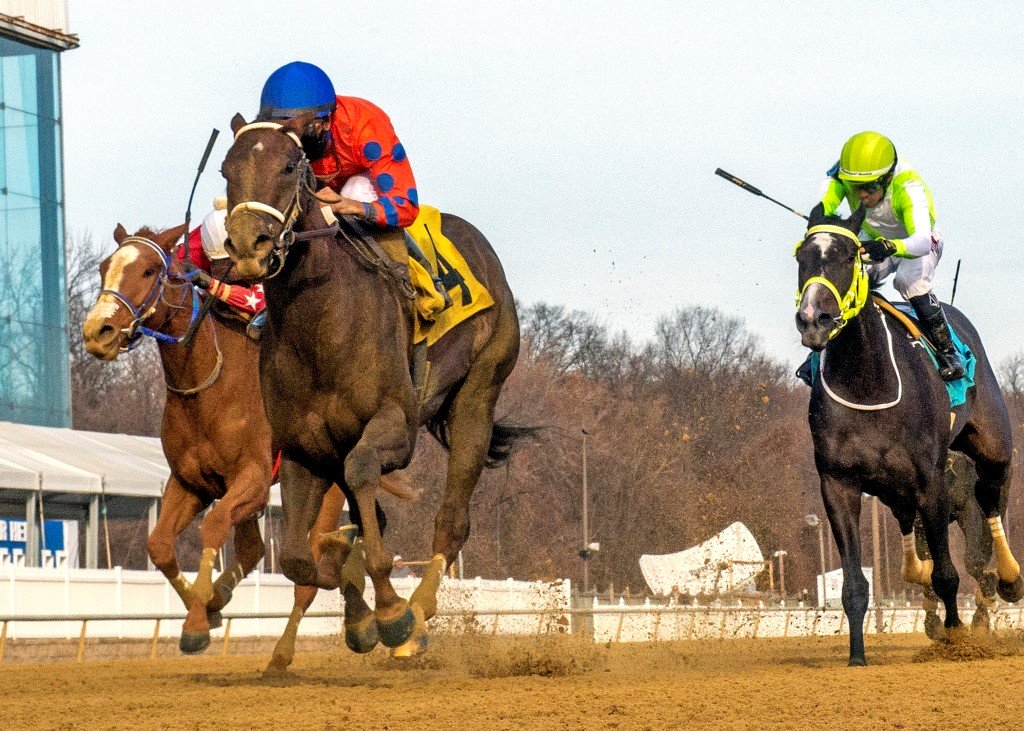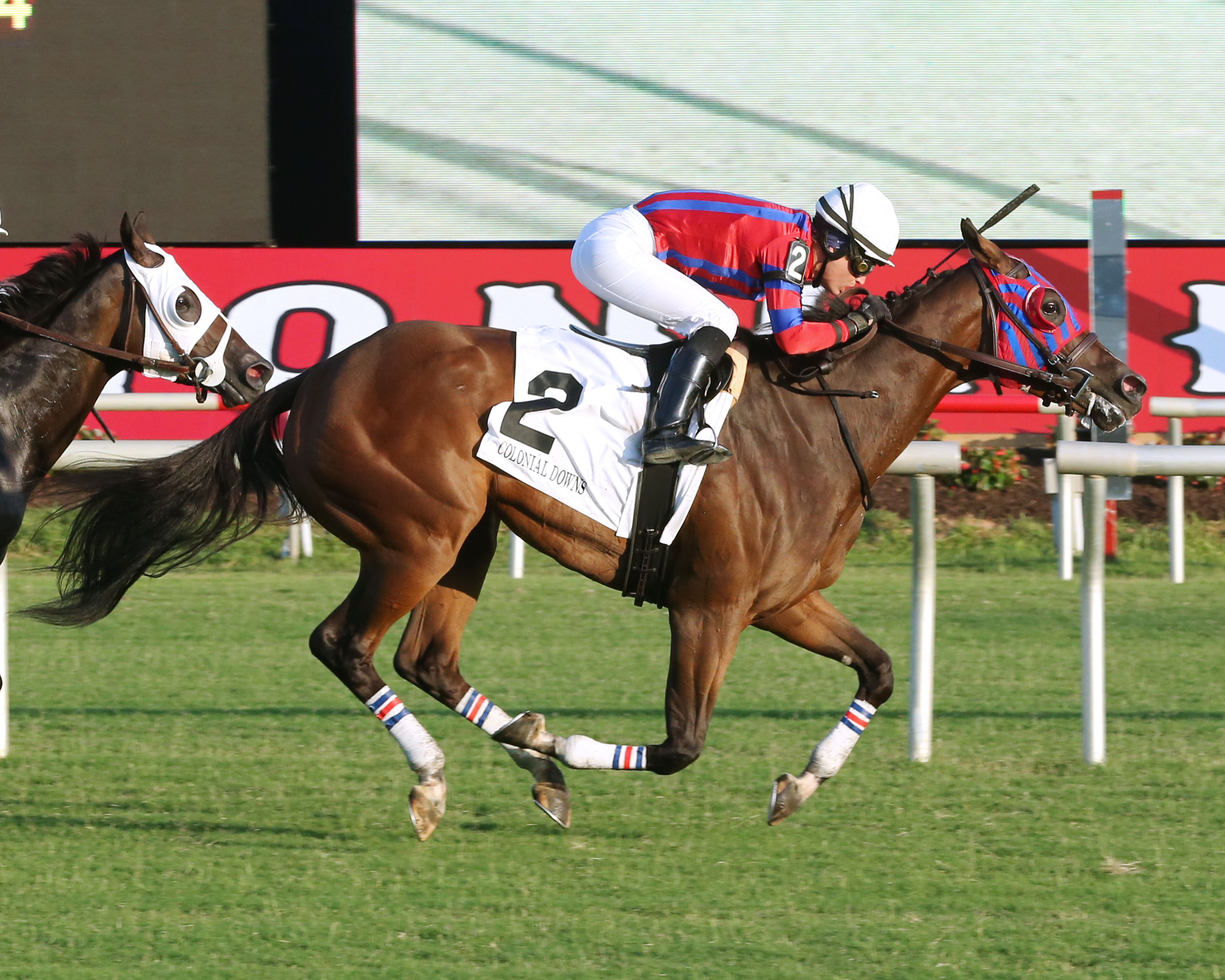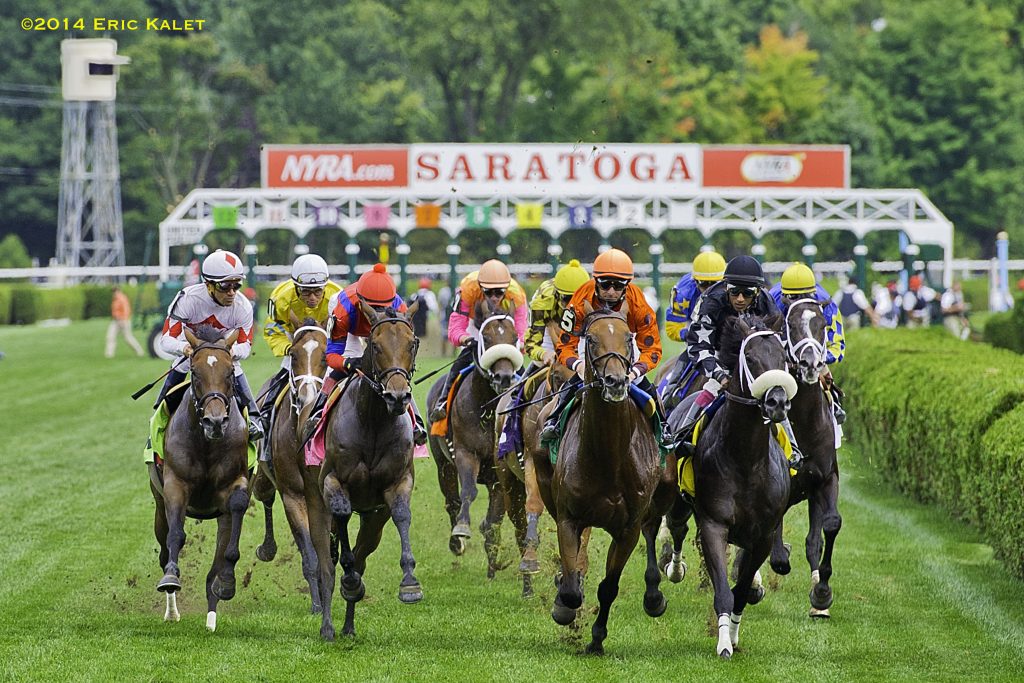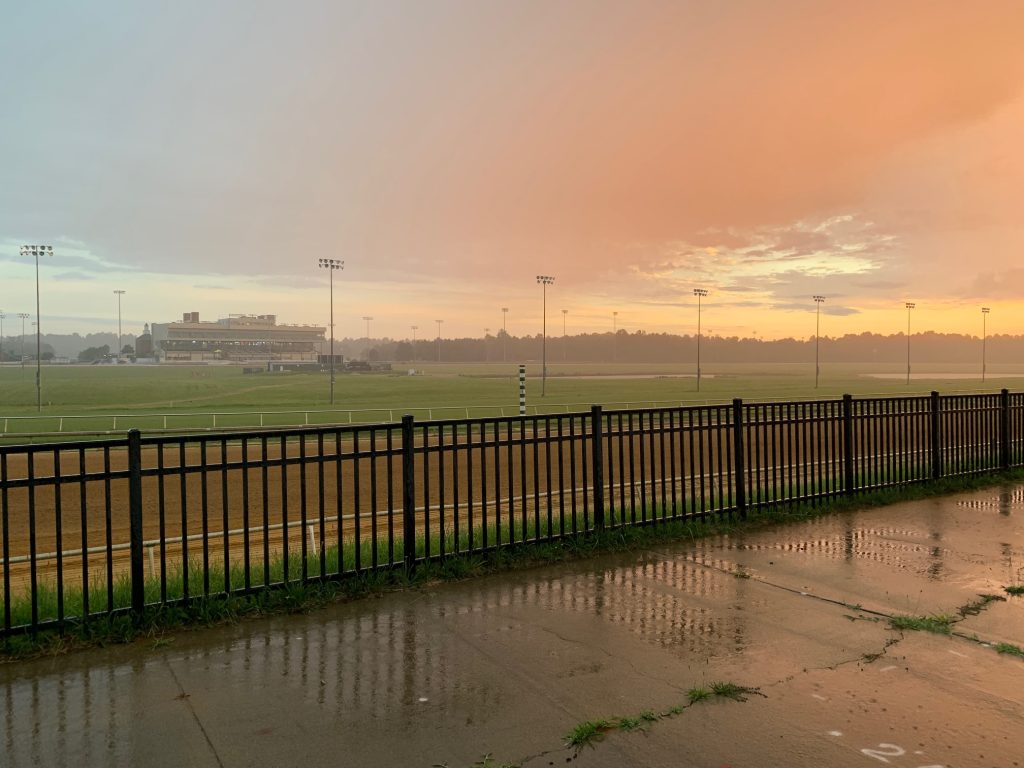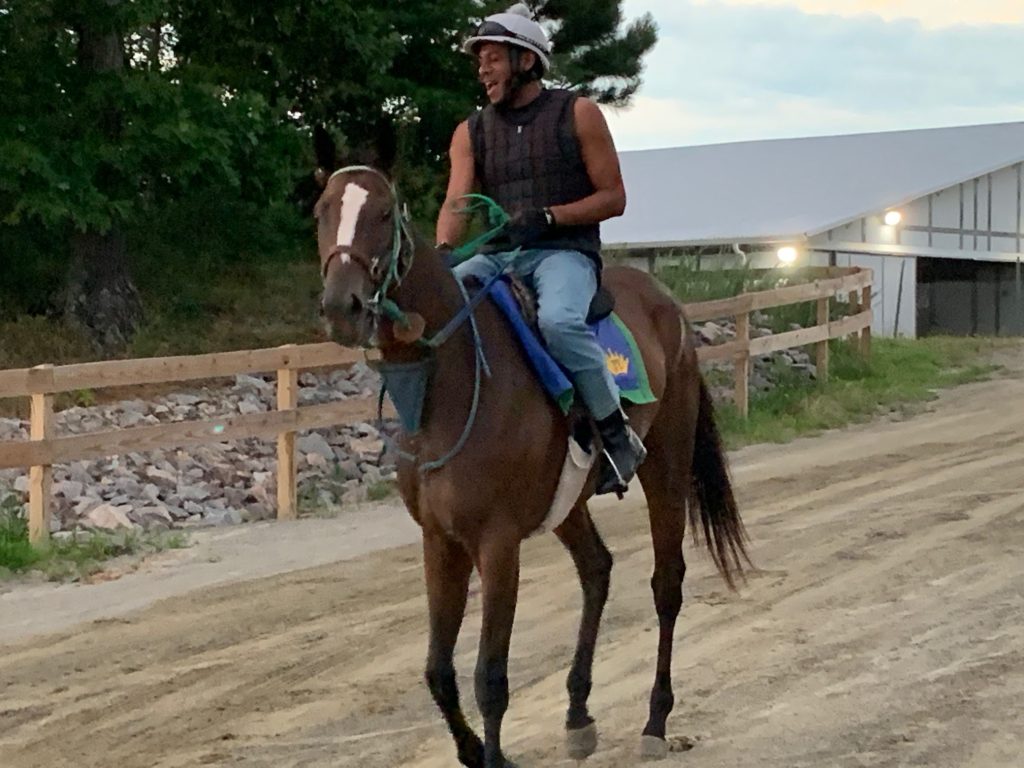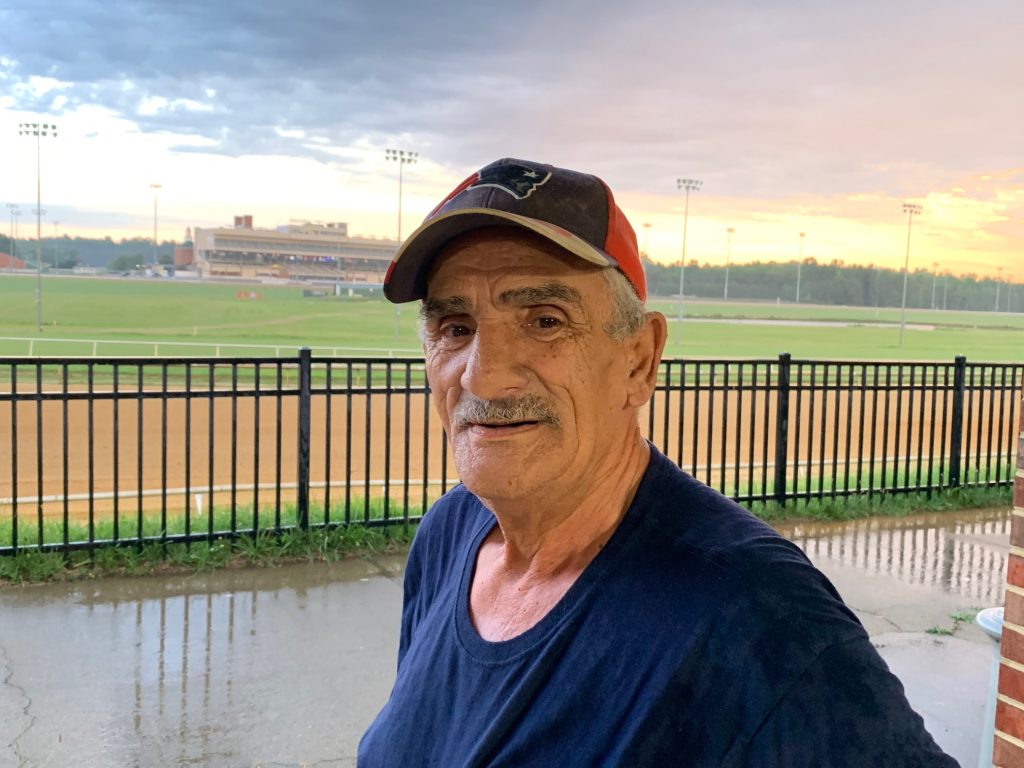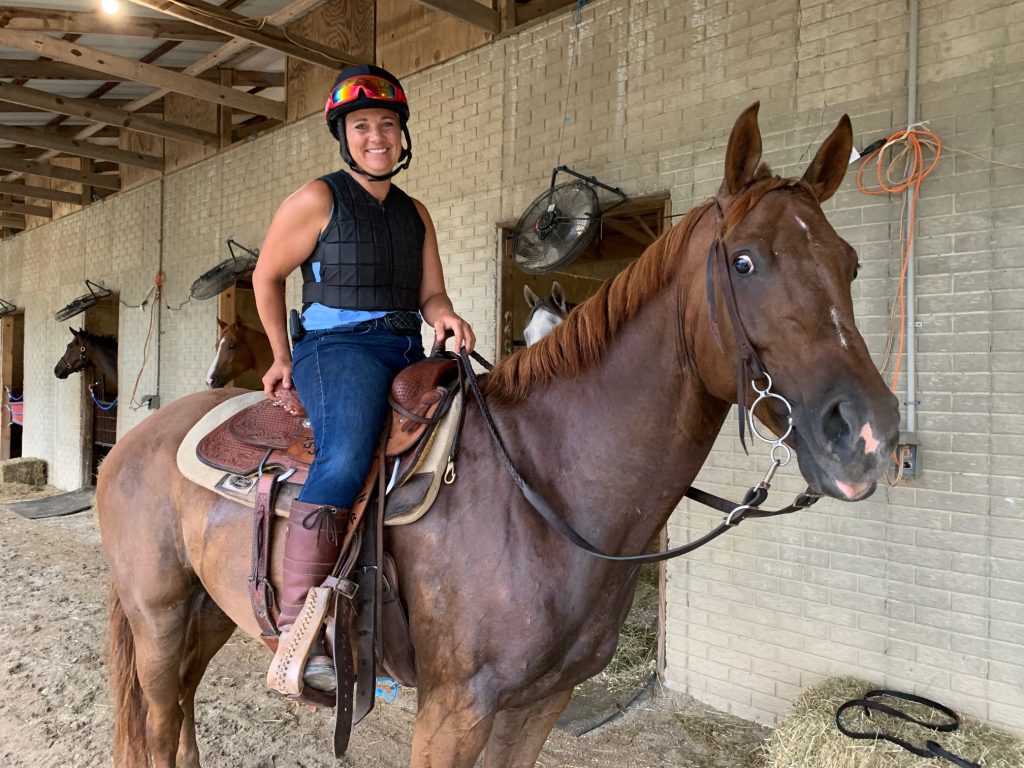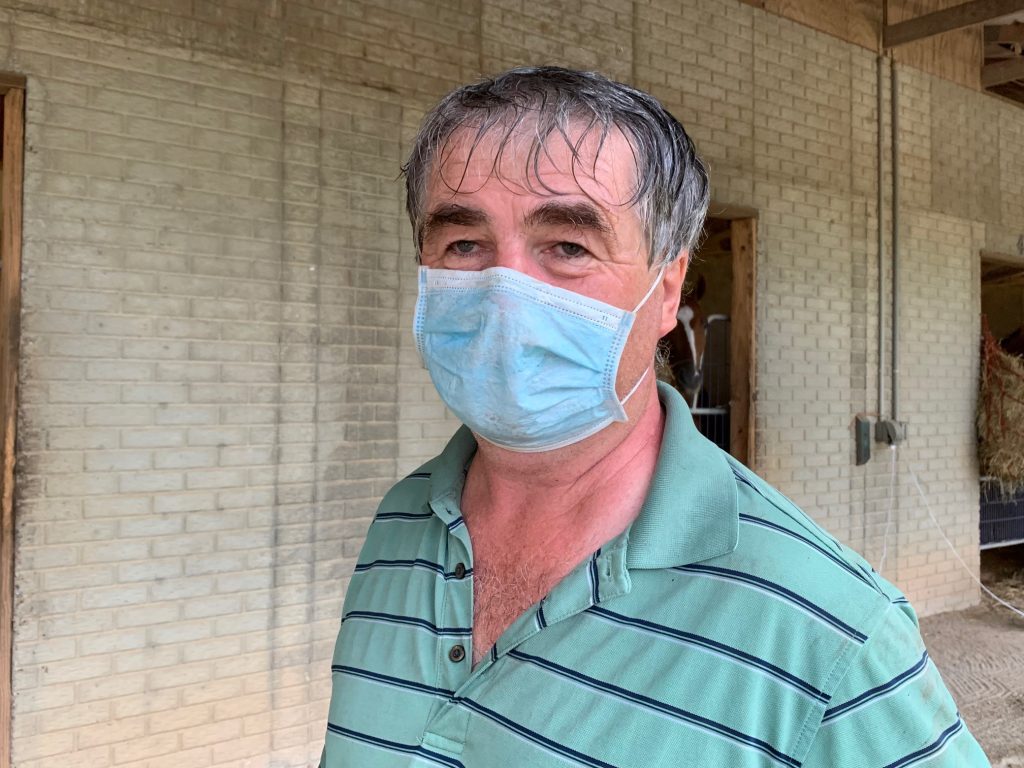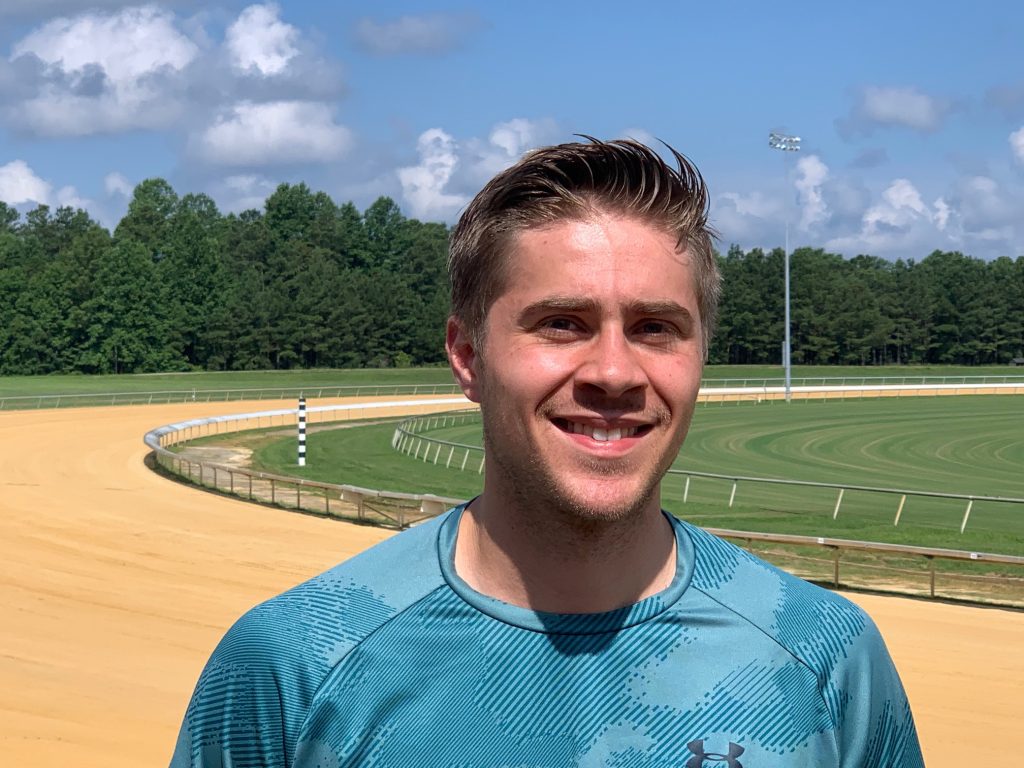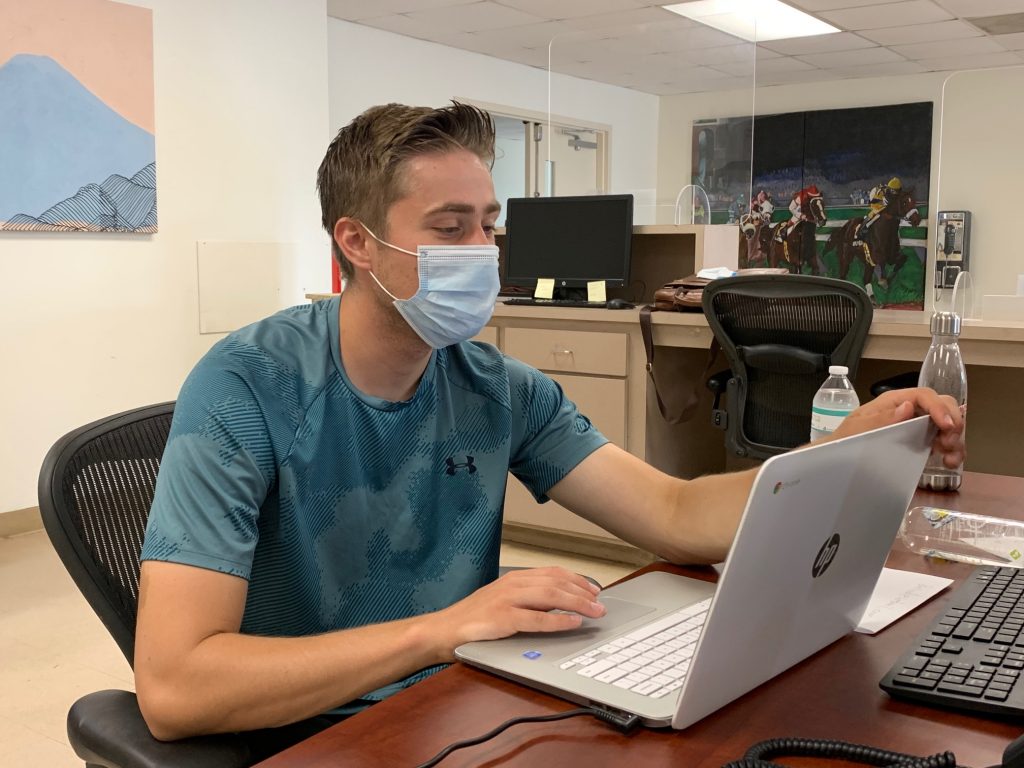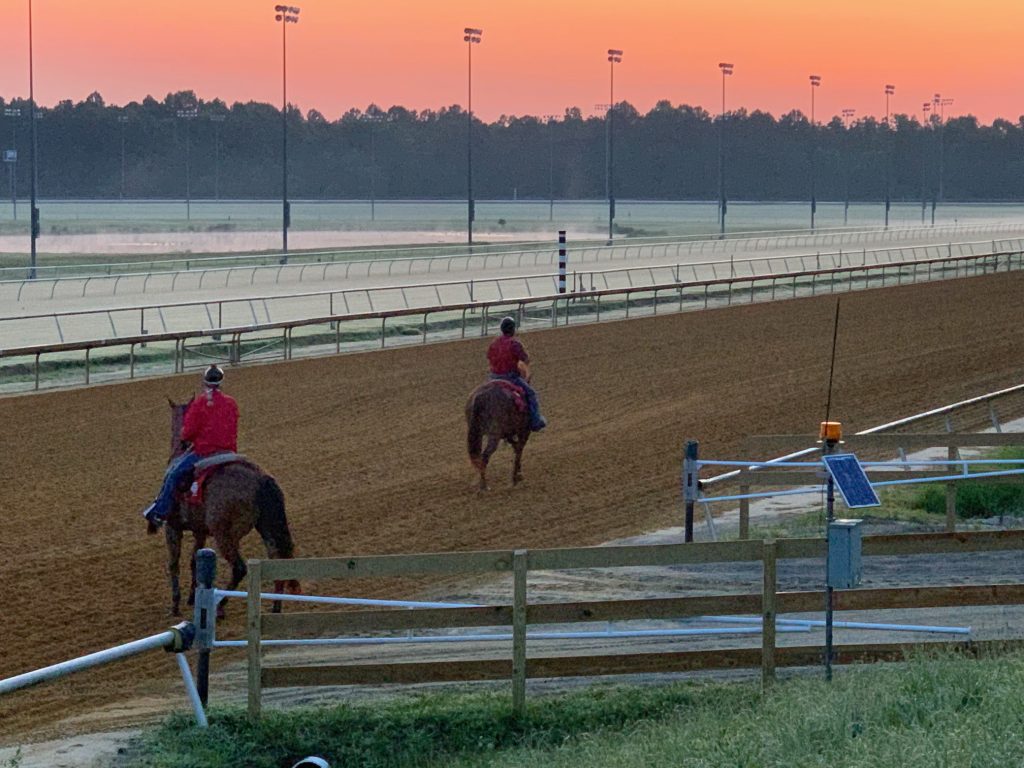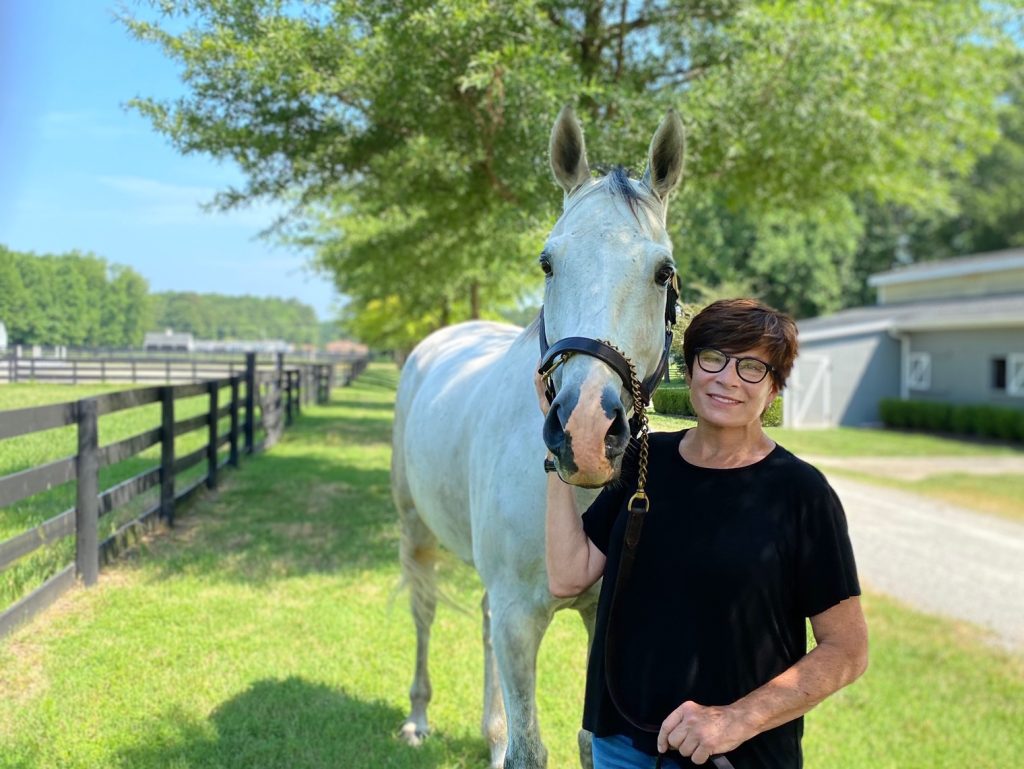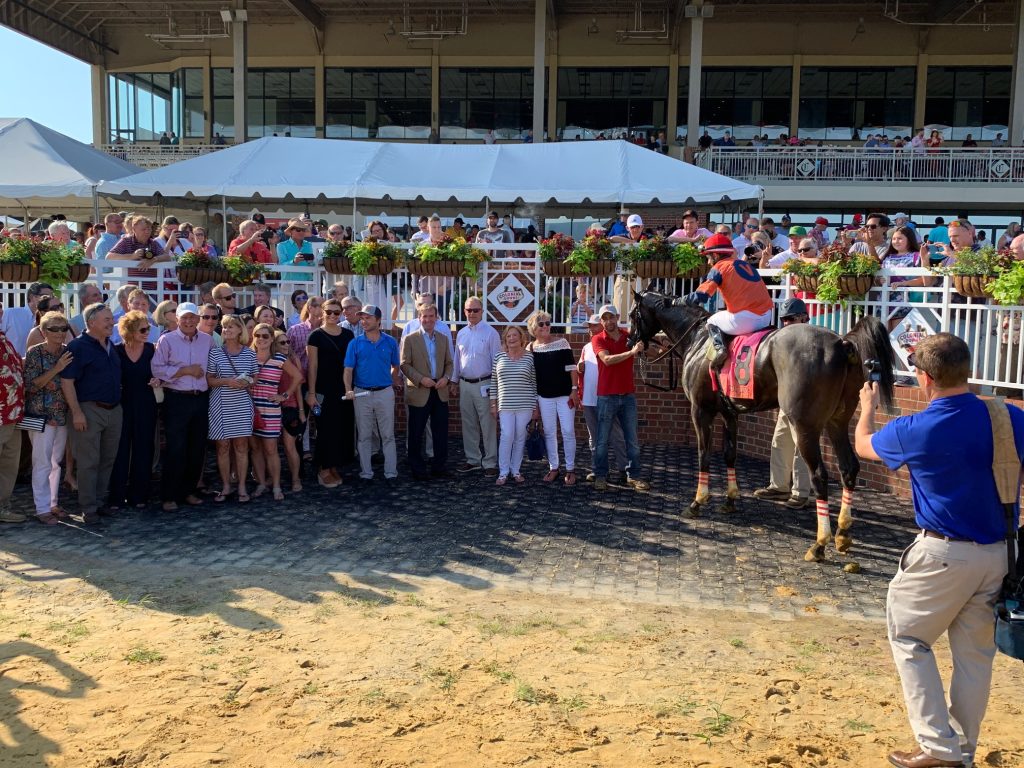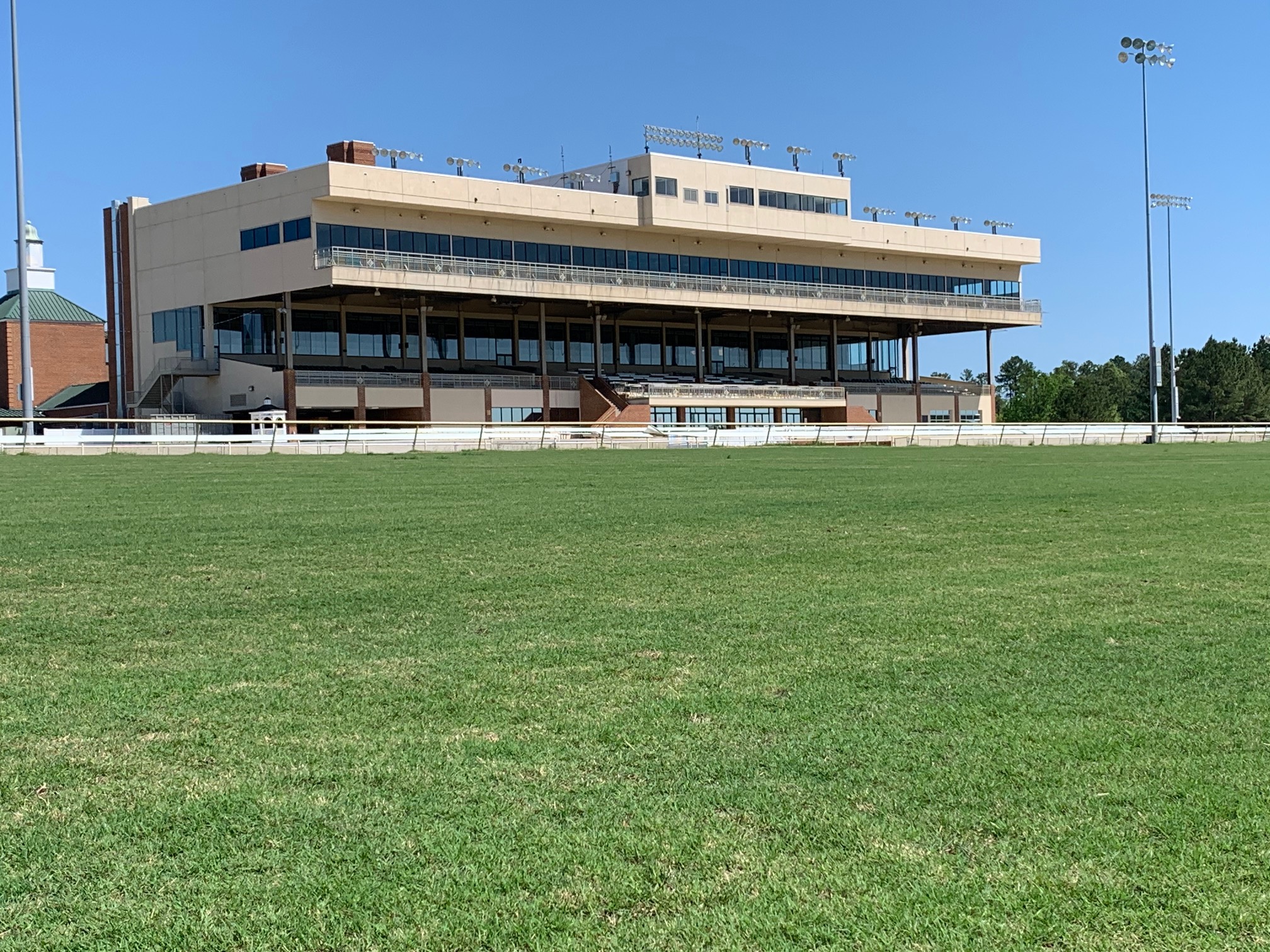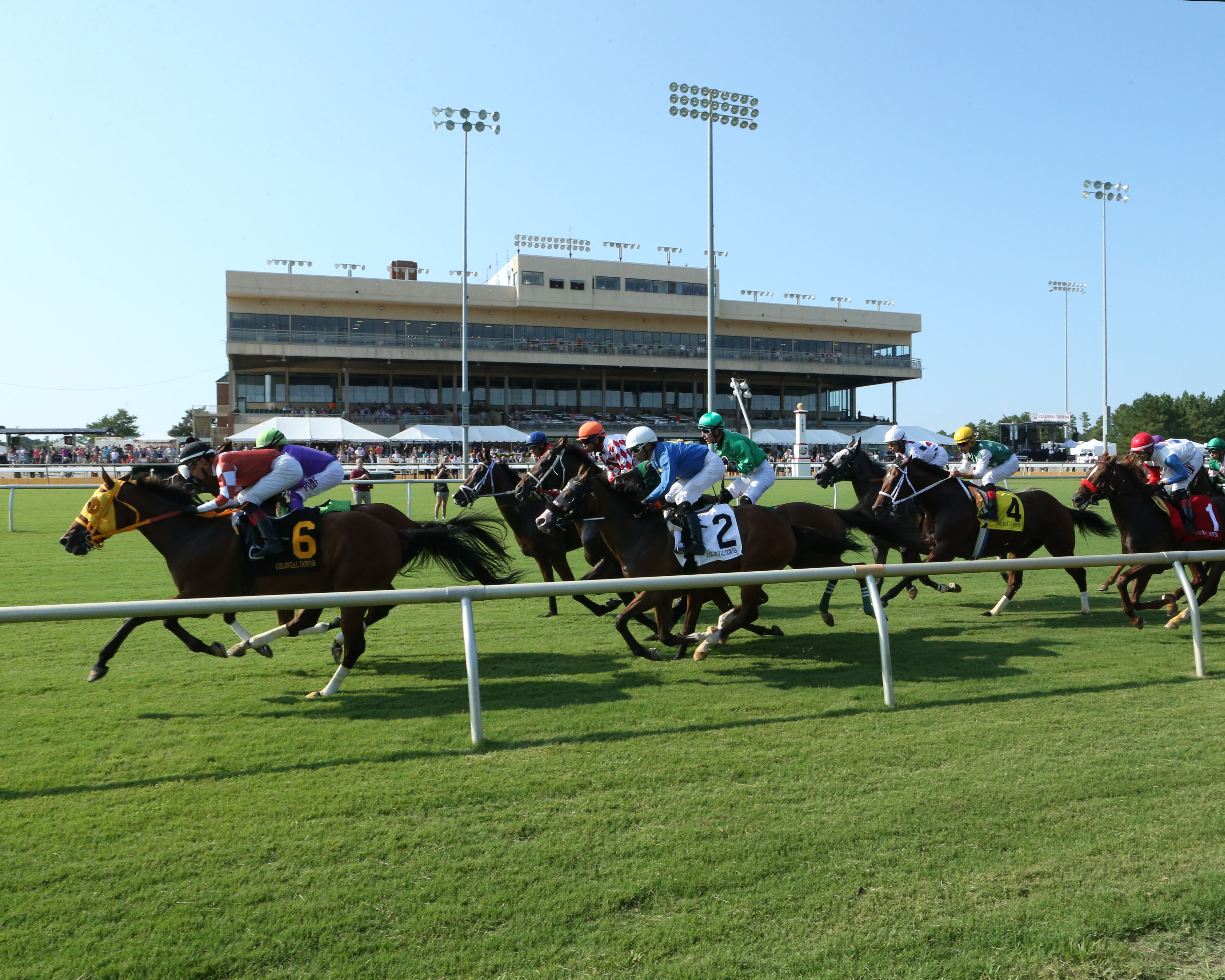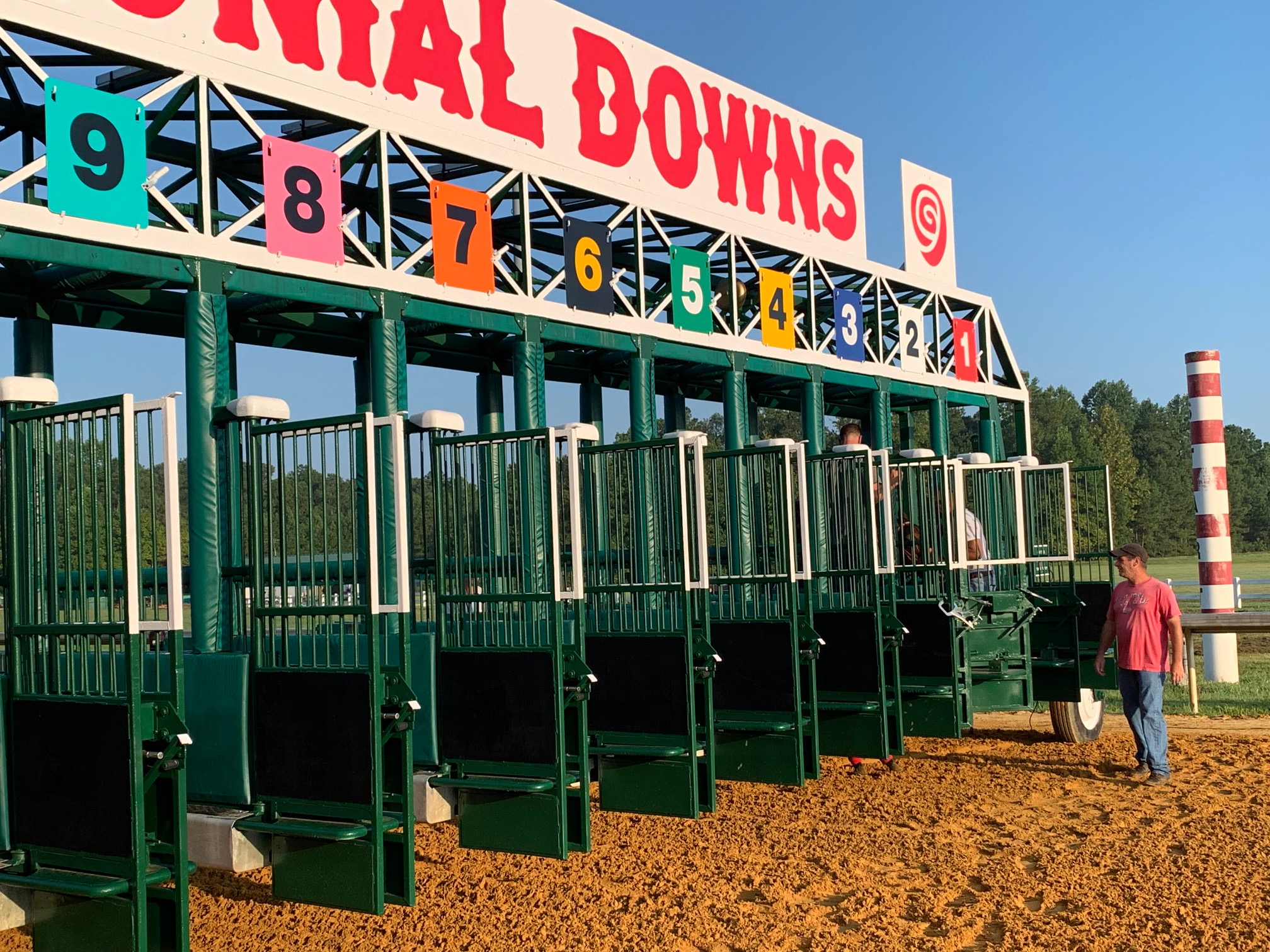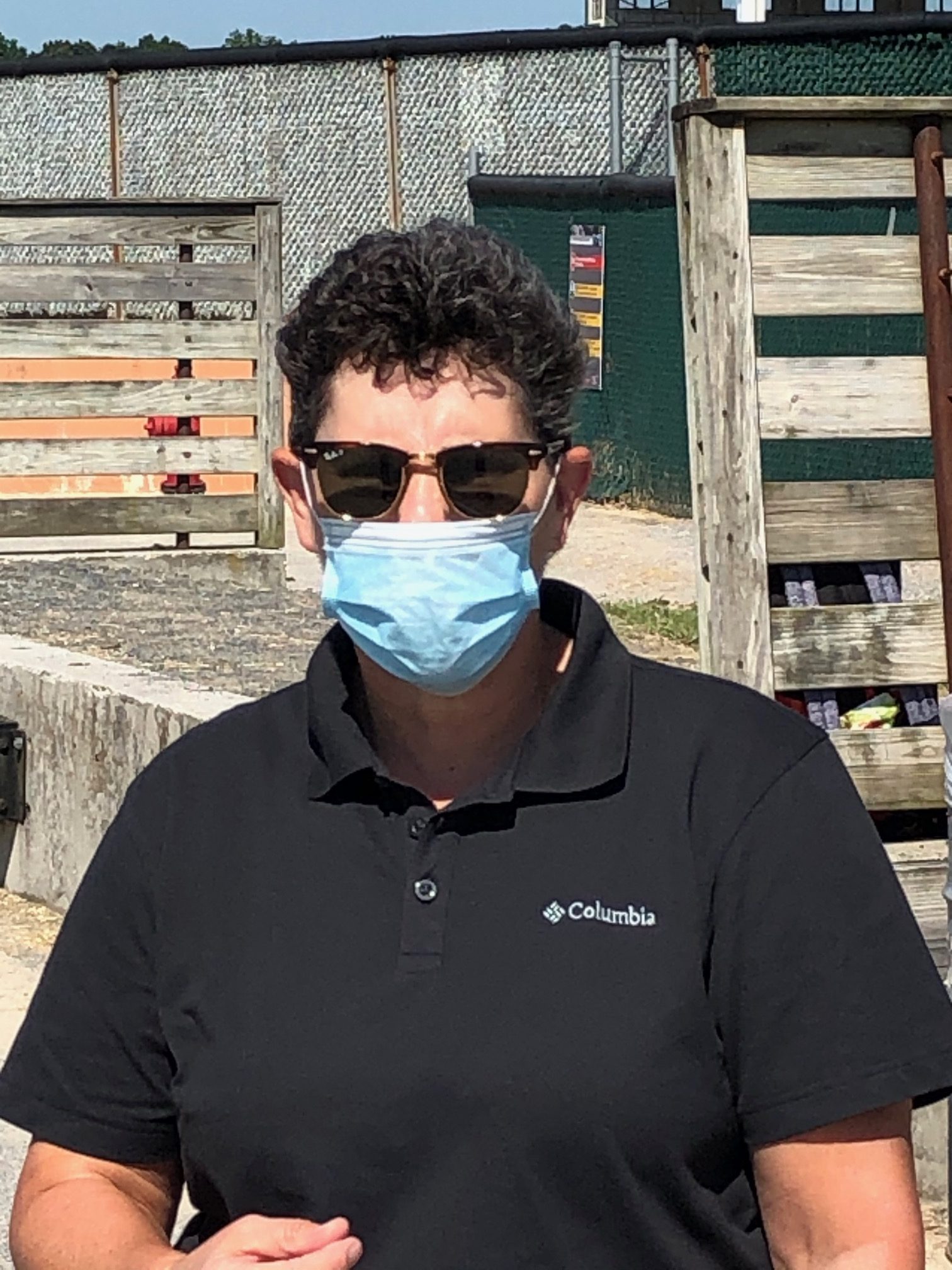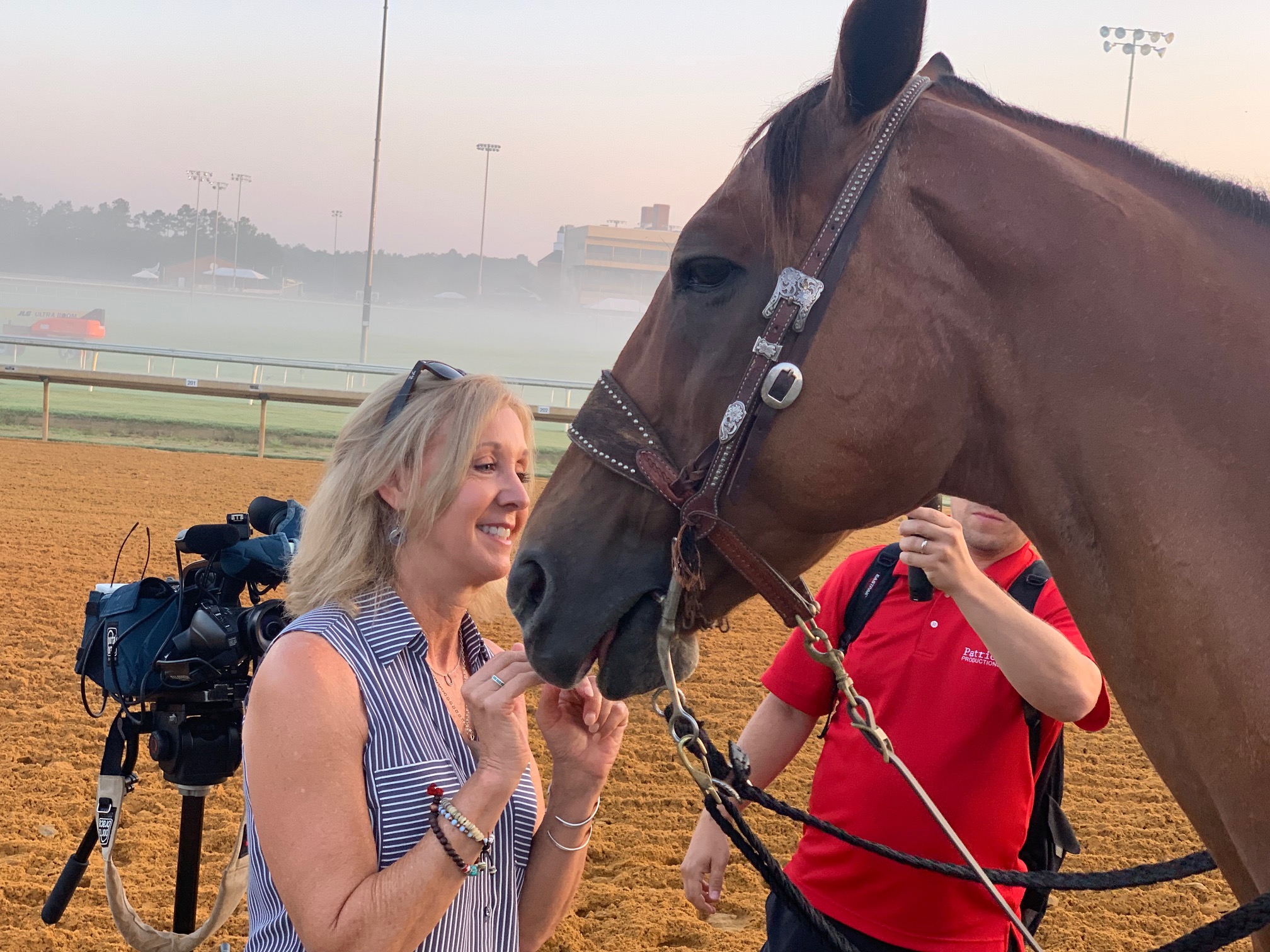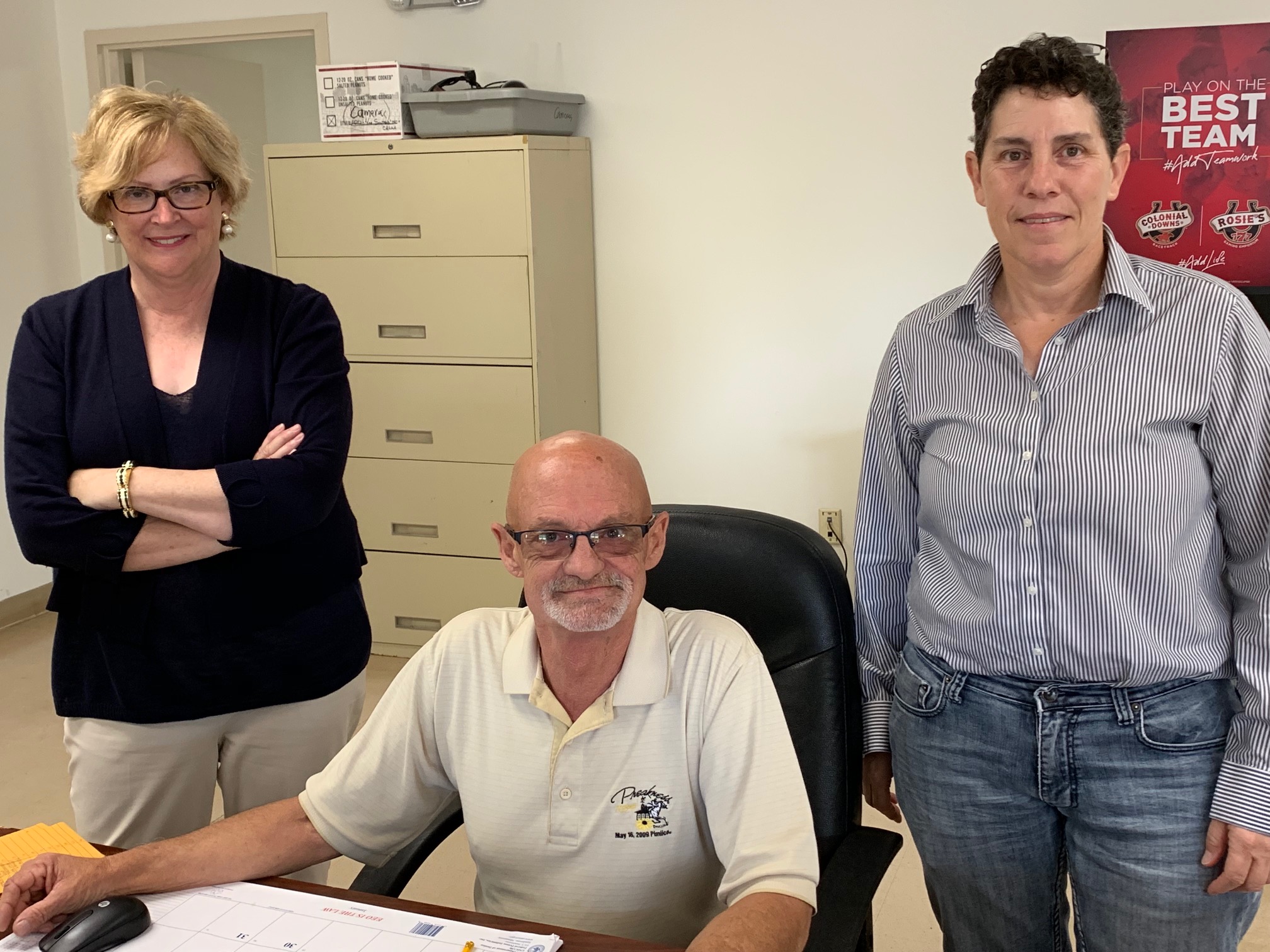Available data includes charted lines from its most recent races, jockey and trainer stats, comparative speed figures along with other variables. At the very end of each horse’s body of work is a listing of recent workout times which can also aid bettors in that selection process.
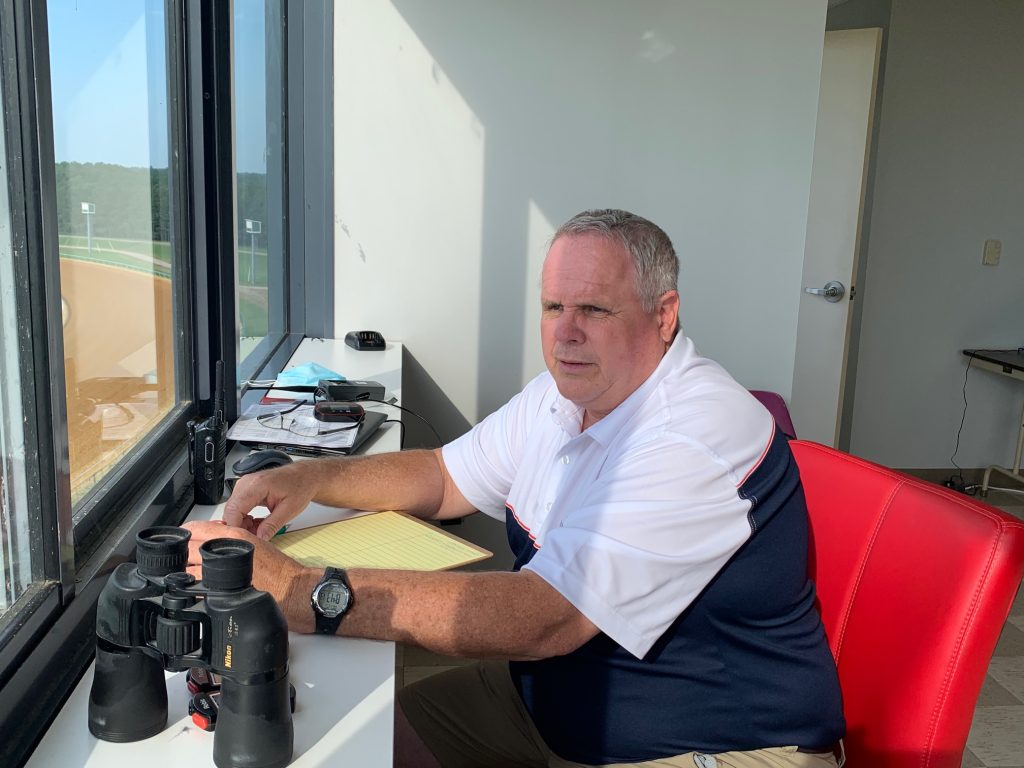
While a workout is not performed at full racing speed, it is faster than a horse’s daily maintenance exercise of jogging and galloping. Morning works are compiled at every track and stored in a database, then appear in the racing program. That workout line includes the date, track abbreviation, distance of work, track condition, time, and ranking of the workout compared to others. A bullet symbol indicates that the workout was the fastest at that track, at that distance, that morning. The symbol “b” after a work indicates the horse was breezing — going very easily and possibly even under a hold during the workout.
At Colonial Downs, George Horner is responsible for providing those times. Based in New Kent for the first time ever this summer, he is the track’s official clocker. Horner spends his early morning hours alone on the grandstand’s top level with a cup of coffee, a pair of binoculars and several stopwatches. The sunrise setting can be serene at times, and hectic at others.
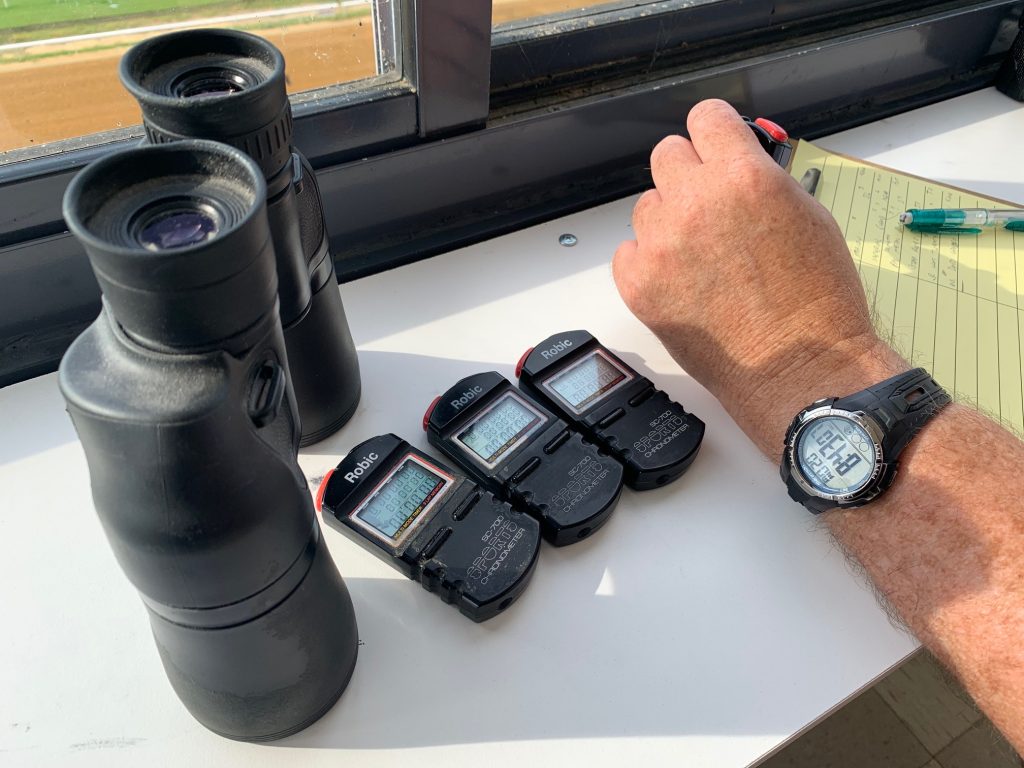
“After a busy Saturday, a clocker can feel like they just had a workout,” said Horner on a recent morning. “You need to be able multi-task.”
Over 600 horses are expected to stable in the backstretch for the six-week meet which runs from July 27 – September 2. Colonial’s dirt track is open six days a week from 6 -10 AM for training except for a 30-minute break halfway through when it is closed for grooming. Every horse gets a chance to utilize the track each morning during that period. If a horse is going to do a published work out — once a week on average — Horner is notified by radio from one of two gap attendants as the horse makes its way onto the track — in theory.
“Sometimes a trainer will just call or text me on my cell,” he said. “Or they may call a land line in the press box. Or the starter may call if the horse works from the gate. And other times, you just look out on the track and see a horse galloping that begins speeding up and gets to that work speed when they hit the start pole. You can see every horse on the track even if they weren’t called in. Through years of watching and learning, you can kind of just tell when that is happening.”
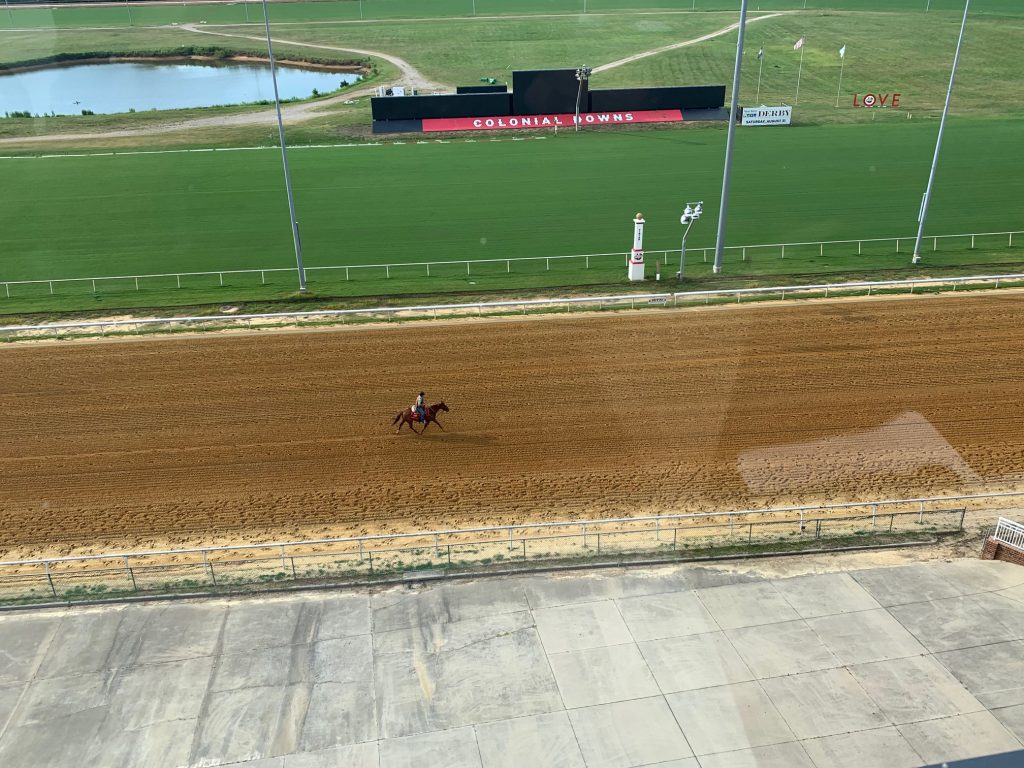
A native of Cleveland, Ohio, Horner started clocking at Thistledown Racetrack in 1989 once he gave up training horses. He has clocked at Delaware Park, Tampa Bay Downs, Presque Isle Downs and even at Arlington Park for a summer. At Colonial, Horner arrived with a pair of 16 x 50 binoculars but he plans to invest in a 10 x 50 model to get a wider viewing range. The New Kent oval is the second largest in the country at 1 1/4 miles around.
Colonial had 200 horses on the grounds July 18 — nine days before its opener — and had 20 work that morning. “The track here is so big you sometimes can’t tell for sure who the horse on the backside is,” he said. “Identifying horses can be a challenge no matter what the track. Two horses worked out of the gate together this morning. One had a marking on his right hind leg and the other one didn’t. I recorded the times, looked at my computer after and pulled up the markings to distinguish one from the other. You have to note things like that to keep up then fill in the details after.”
He said Arlington, which employed four clockers, was the most challenging of his stops. “We had 200 horses work out some mornings,” he said. “After the break is when you have your problems. You’d see 70 or 80 line up to get on the track and knew a lot were going to work. You can cover it with four though. For the clocker, it can be a mental workout some days.
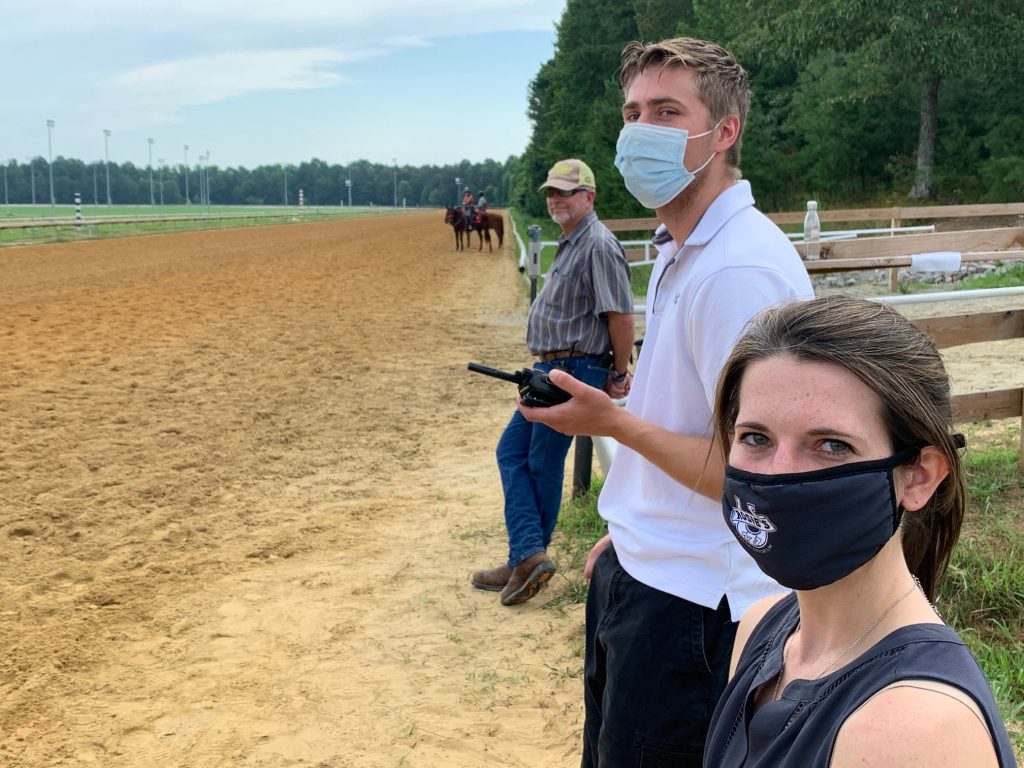
“At Tampa there are two clockers,” he added. “It’s a smaller track so you don’t need to use binoculars as much. You get to know the rider’s style and saddle towels over time. You try to catch every horse but in reality, nobody can catch every horse. There could be a horse working five-eighths and you caught him at the half mile mark. You’ll be able to gauge what that first one-eighth was though. You’re not going to be off much. It is not 100% accurate. If three people are clocking, not everybody is going to have the same time. There’s a human element to it.”
Every trainer has a different method of approaching workouts for their horse. “They want to see the time it takes to get over the work and how the horse comes out of it,” said Horner. “How tired did he get? Do you stretch him out next time to a half mile from three-eighths? That’s one thing about this game — there’s no right way. Some guys work three-eighths a lot, some five-eighths and a few will even work a mile.
“Workouts can be misleading,” he added. “It’s all about how the horse works that half mile. A big factor is the first one-eighth. If he breaks slow but finishes good, the time might appear average but it was done right. He had horse left at the end. Sometimes you can see how easy it looked — the rider is sitting calm and cool on him, finishing well on his own versus being fast early and spent at the end. It’s how they do it more than the time,” he continued. “You look for a horse that does it comfortably and easily and has a ton left.”
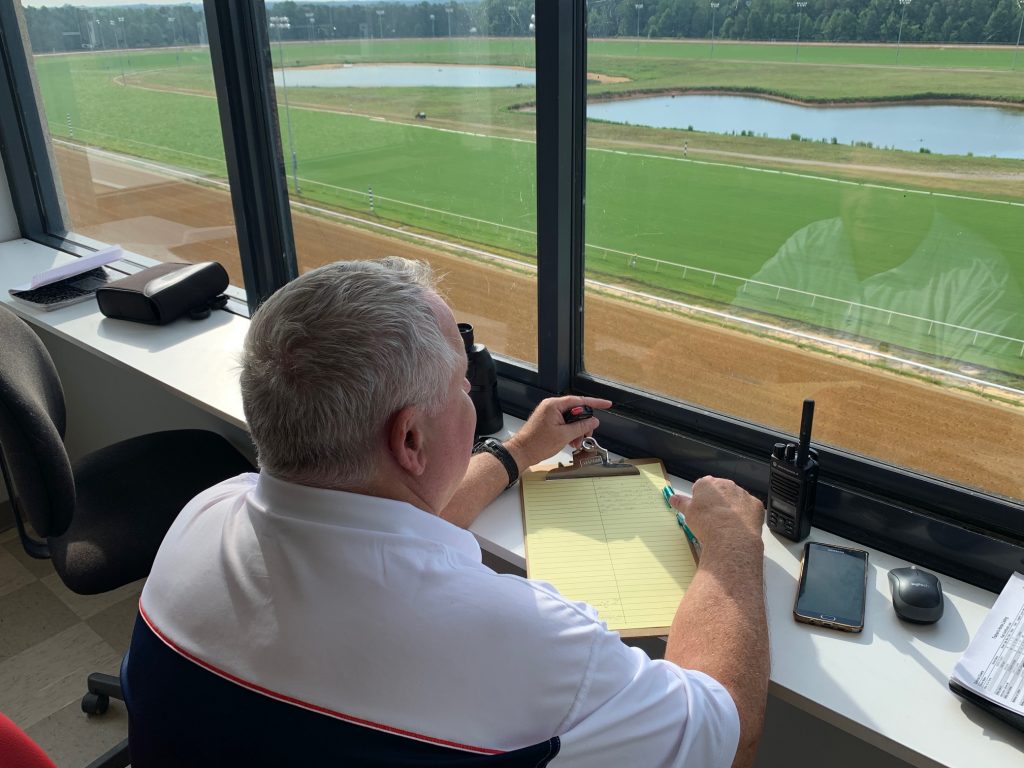
Handicappers have to decide the value of workout lines in relation to the other data. “Past performances are the best indicator in a sense of how the horse has run,” said Horner. “There are plenty of horses that run fast in the morning but don’t run as good in the afternoon for whatever reason. They fall apart emotionally and get stressed out before they do it. In the morning, they’re out by themselves with no competition, in a relaxing mode. That happens more than you think.”
Growing up, Horner’s father had horses so he naturally gravitated toward the business. He started working at age 16 and became a trainer at the age of 19. Between 1977 – 1988, his horses made 1,130 starts and reached the winners circle 177 times.
“Racing is a tough business. It’s inconsistent and trainers have lots of ups and downs. When things are going good, it’s wonderful. When things aren’t going good, it’s not so wonderful. It’s so iffy. I give trainers a lot of credit.”
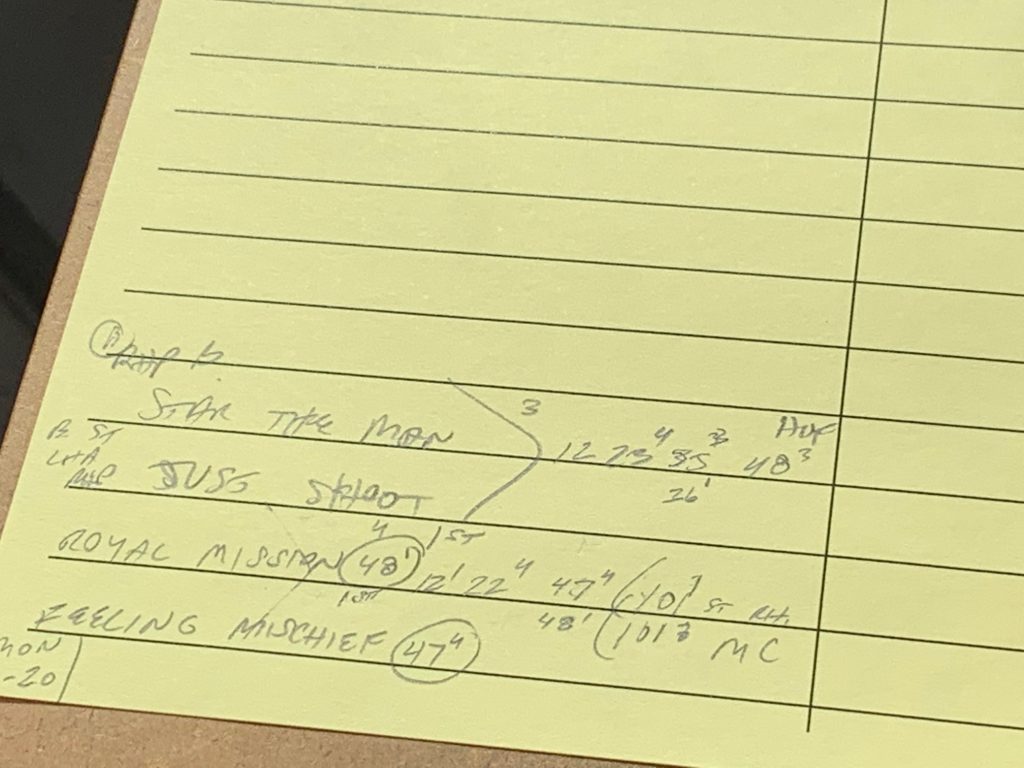
When Horner was offered the clocker’s position at Thistledown in 1989, he took it and never looked back. He left to become a clocker at Tampa Bay Downs in 1999 and has been there since. Their season starts in late November and normally continues through early May. This year, it went through July 4 in an extended campaign. “It’s a seven day a week job, so you better enjoy it,” he said. “I know going into that meet I’ll get three days off — Thanksgiving, Christmas and Easter.
“The job itself is pretty basic but it all happens very quick. You get the call or text, look for the horse, pick him up, time him, and just do your best. There’s one thing about it. You can do it as long as you can see and keep your wits about you,” said Horner. “You need to do something to stay busy, right?”


